STARTUP HURDLE- 1/10 CHANCE OF SUCCESS
- Yashasvi Sharma
- Aug 1, 2020
- 3 min read
The increasing volume of startups in India is a real parameter for measuring the innovation & ability of the human mind, with more than 52,000 startups in 2019 & growth of 12%-15% YOY portrays the inclined support towards the startup culture in India.
Firstly, we have to understand what is a startup the layman definition can be, that any new venture started is a start-up, but the legal one state that, “An entity is considered as a Startup up to ten years from the date of its incorporation/ registration, with an annual turnover not exceeding 100 crore for any of the financial years since incorporation/registration”.
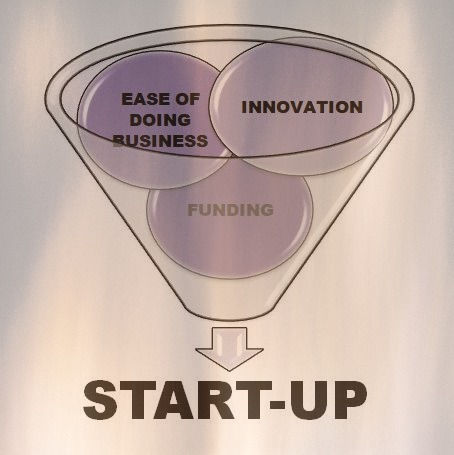
But the real question is what it takes to be a startup, what all parameters contribute to an idea to be called a “start up”. The general success rate of startups is such that out of 100 startups 90% fails within the first five years.
Particularly in a country like India where the craze of startup or entrepreneurship is very high, with diversity of talent across length & breadth, this ancient land is coming up with ideas which have the potential to ease the life of the individual.
1. INNOVATION
The aim of innovation is to provide a strategic edge to any startup over its competitors. Basically innovation bridges the gap from tradition to technology. Creating intelligent solutions for problems which are faced by the consumers in their day to day life, provided that the solutions have a commercial/ Market value.
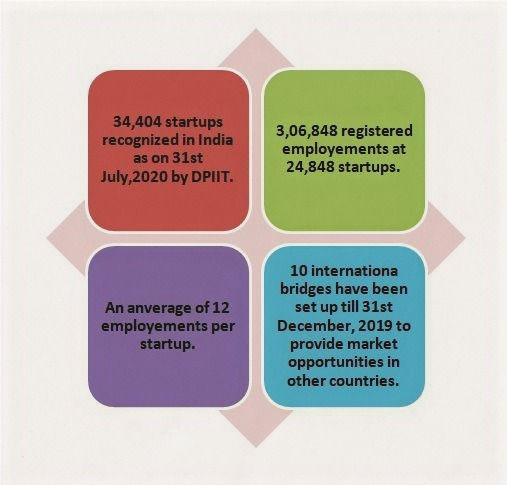
DPIIT- The Department for Promotion of Industry and Internal Trade.
Traditional transformation is one of the biggest domains of innovation in India, if we believe that our traditional solutions can synergize with the modern day problems.
2. EASE OF DOING BUSINESS
The aim of any government is to act as a lubricator in this upcoming startup generation. It is seen that the ease of doing business in India has been improved rigorously. As per the report of world bank, “Doing Business Report (DBR)-2020” India stands at 63rd position among 190 countries which is far better than the scenario in 2014 when India stood at 142nd position.
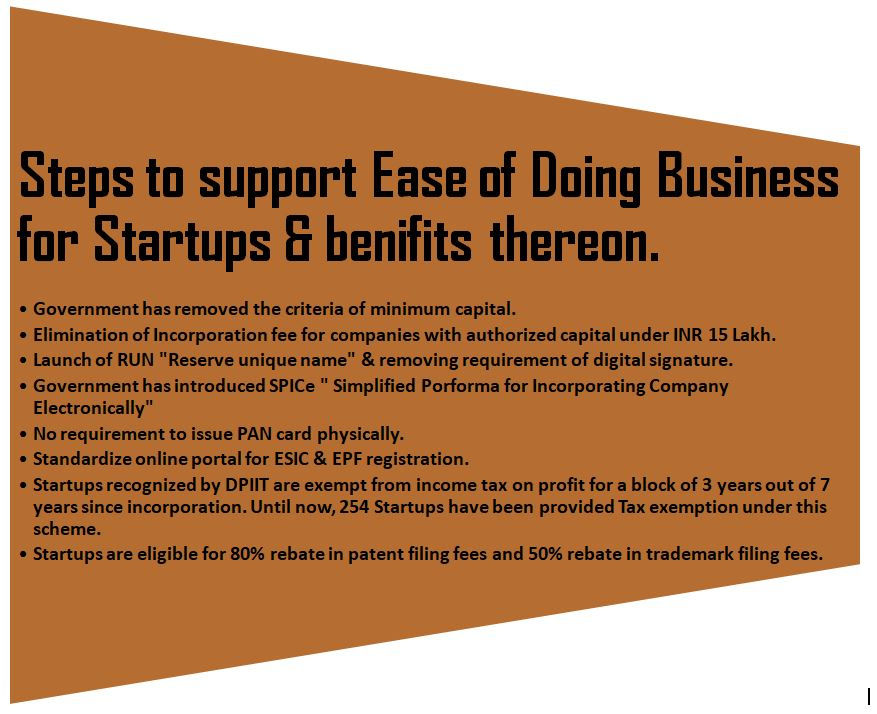
Government has also come up with an initiative to buy goods from these startups i.e Public Procurement. This initiative is supported by Government e Marketplace (GeM), an online platform to support the activities of public procurement. As of now 13666 orders have been placed under the GeM scheme to various startups for a value worth 463.50 crore.
3. FUNDING
The first stage for any start-up is valley of Death this is the preliminary stage for any start-up, any venture capitalist or private equity investor does not invest in any idea first the idea needs to survive the fumes of the market in this time of the business funding comes from FF & Angel Investors (Seed Funding).
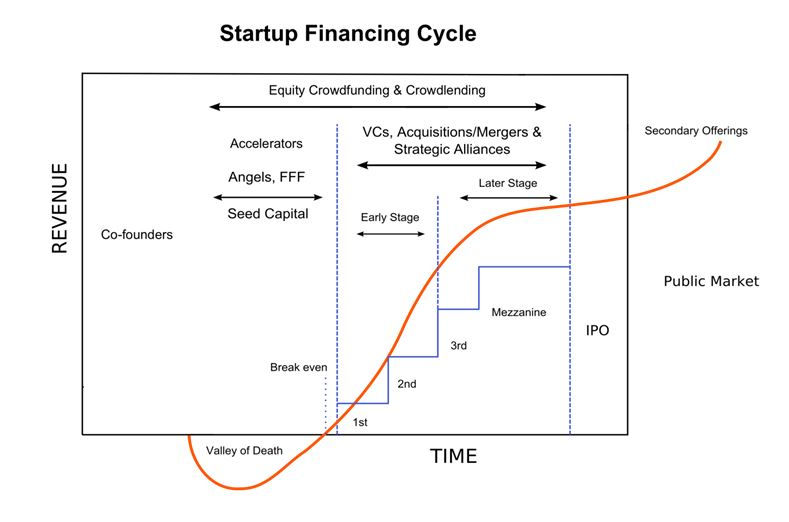
FFF stands for Family Friends & Fools, they are the primary source of funding for any startup at the starting stage. Thereafter comes the angel investors, they are a common source of funding for startups prior to getting any funding from a formal institution.
Once the venture reaches the break-even point other institutional investors comes into play which include Venture capitalist, Private Equity investors
Venture capitalists invest in the early stage of the firms while equity investors invest in the later stage such as buyout, turnaround etc.. Various Research shows that on average two-thirds of the investments made by a VC fund lose money and one-third of VC backed companies eventually fail.
Generally VC & EI does not invest directly in any start-up. A fund is formed in both the cases namely VC Fund & PI Fund and various investors invest in these funds on account of return, however these funds invest in their portfolio companies for Equity, warrants, Debts etc.
In the latter stage when profit is earned by the investors, they Follow a full or partial exit, invested capital and profits are distributed to a fund’s partners & after that startup goes into the IPO stage ( Initial Public Offering).
The government has also initiated to support the investment in start-ups for this. has created a fund of funds. This FOF for startups will work as follow:-
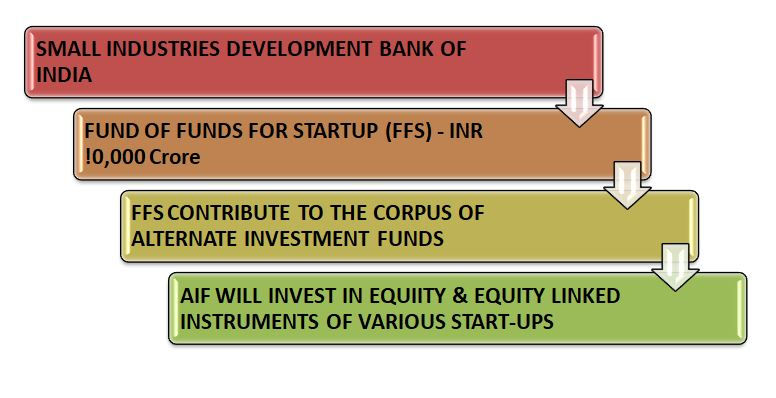
Fund of Funds for start-ups, in general parlance as gathered from publicly available sources is an investment strategy of holding a portfolio of other investment funds rather than investing directly in stocks, bonds or other securities. In the context of A
So i hope that you all are able to catch up the startup trail. In the next blog of Startup hurdle series we will discuss some other dimension of this domain.
Till then Hasta-la-vista..................................................................


Comments